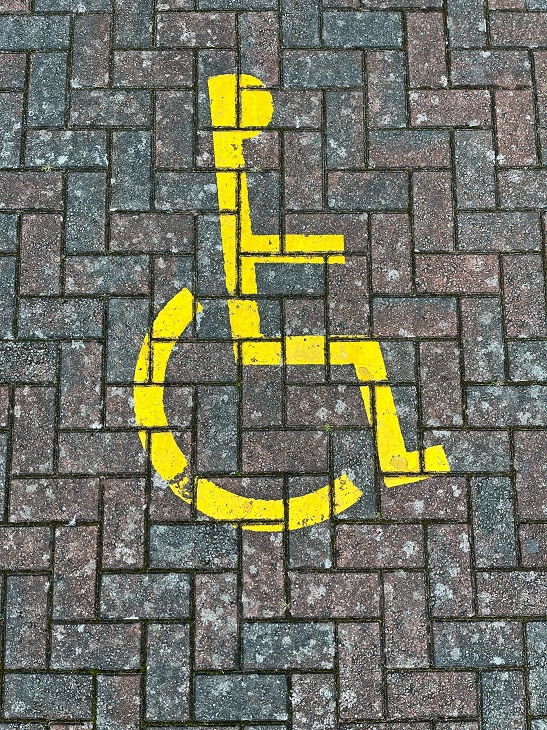Traveling is a transformative experience that opens doors to new cultures, landscapes, and perspectives. For individuals with disabilities, however, the excitement of travel can be tempered by the challenges of navigating an unfamiliar environment. One significant hurdle is finding accessible parking, a crucial aspect of ensuring a smooth and enjoyable journey.
Today we’re going to explore the importance of accessible parking for travelers with disabilities and provide practical tips on finding suitable parking nationwide. From Oregon handicap parking space design to Alabama handicap parking regulations to Connecticut handicap parking laws and fines, we’ll provide an overview of what accessible parking looks like across the nation.
The Importance of Accessible Parking
Accessible parking spaces play a pivotal role in ensuring inclusivity and equal access for individuals with disabilities. For those who rely on mobility aids such as wheelchairs, walkers, or scooters, having convenient access to parking spaces designed to accommodate their needs is essential. It not only facilitates easier entry and exit from vehicles but also promotes independence and a sense of autonomy.
Unfortunately, despite advancements in accessibility awareness, individuals with disabilities often encounter barriers when it comes to finding suitable parking spaces. Unavailable or poorly designed accessible parking can turn a simple task into a frustrating ordeal, hindering the overall travel experience.
Legal Framework and Guidelines
To address these challenges, various countries have established legal frameworks and guidelines to ensure that individuals with disabilities have equal access to public spaces, including parking facilities. In the United States, for instance, the Americans with Disabilities Act (ADA) sets standards for accessible parking spaces.
According to the ADA, accessible parking spaces must be located on the shortest route of travel to an accessible entrance, and they should have features like an access aisle to facilitate the deployment of mobility devices. The law also mandates the appropriate number of accessible spaces based on the size of the parking facility.
These laws are pretty well uniform nationwide – Ohio handicap parking regulations are likely to be similar to Texas disability parking laws, which are likely to resemble Wisconsin disability parking laws, and so on. So no matter where you go on your travels, you can be confident the ADA guidelines for accessible parking should be in place.

Tips for Finding Accessible Parking Nationwide
Research in Advance
Embarking on a journey, especially for individuals with disabilities, demands a thoughtful and strategic approach. One of the foundational pillars for a successful travel experience lies in meticulous research conducted well in advance. Knowledge is the key to unlocking accessibility, and this is especially true when it comes to finding suitable parking spaces for those with mobility challenges.
Destination-Specific Information
The internet has become an invaluable resource for travelers. Before setting out, explore the official websites of your destination, paying special attention to any available accessibility information. Many cities, attractions, and public spaces provide detailed guides on accessible parking options, complete with maps and pertinent details. This preliminary exploration can save a significant amount of time and effort on the ground.
Online Accessibility Resources
Numerous online platforms and accessibility-focused organizations have recognized the need for comprehensive information about accessible parking. Dedicated websites and apps offer databases of parking spaces, often allowing users to filter results based on specific accessibility criteria. These tools can be invaluable in crafting a parking strategy that aligns with individual needs and preferences.
Local Advocacy Organizations
Connecting with local disability advocacy organizations can provide an insider’s perspective on the accessibility landscape at your destination. These organizations often maintain up-to-date information about accessible parking spaces and may even offer tips or insights not readily available through mainstream channels. Establishing contact beforehand can also help build a support network in case of unforeseen challenges during your travels.
Government Resources
Municipalities and local governments are increasingly recognizing the importance of accessible infrastructure. Many cities publish accessibility guides or provide contact information for relevant departments that can offer guidance on accessible parking. This information is crucial for understanding the legal framework, parking permit regulations, and any specific accommodations available to travelers with disabilities.
Peer-Reviewed Experiences
In addition to official resources, consider delving into the experiences of fellow travelers with disabilities. Online forums, social media groups, and travel blogs often feature firsthand accounts of parking challenges and successes. Learning from the experiences of others can offer practical insights and help you anticipate and navigate potential hurdles more effectively.
Hotel Accessibility Information
If your journey involves a stay at a hotel, investigate the accessibility features not just within the hotel but also in its vicinity. Many hotels collaborate with nearby parking facilities to offer accessible options for guests. Contact the hotel directly to inquire about these arrangements, ensuring a seamless transition from parking to your temporary residence.
Updating Information
Accessibility information can change over time due to renovations, construction, or policy updates. As your travel date approaches, revisit the sources of information to ensure that you have the most recent and accurate details. This proactive step minimizes the risk of relying on outdated information and encountering unexpected challenges upon arrival.
Use Parking Apps
Leverage technology by using parking apps that provide information on accessible parking spaces. Apps like “Accessible Parking” and “Parkopedia” allow users to search for parking spots with specific accessibility features, such as proximity to ramps or elevators.
Contact Local Authorities
Reach out to local municipalities or parking authorities at your destination. They can provide valuable insights into the availability and location of accessible parking spaces. In some cases, they may also offer permits or temporary accommodations for individuals with disabilities.
Plan Your Route
Plan your route in advance, taking into consideration rest stops and potential parking locations. Use mapping services that provide information on accessible parking along your route. This proactive approach helps avoid last-minute stress and uncertainty.
Utilize Your Disabled Parking Permit
If you have a disabled parking permit, make sure to display it prominently. This not only ensures that you have access to designated accessible spaces but also serves as a visible signal to others that the space is reserved for someone with a disability.
Check Parking Lot Accessibility Features
Assess the accessibility features of parking lots before choosing one. Look for features such as wide parking spaces, well-maintained access aisles, and ramps. Some parking facilities may also have designated drop-off zones near entrances.
Be Prepared for Plan B
Despite careful planning, unexpected situations may arise. Have a backup plan in case the initially selected parking facility is not suitable or unavailable. Familiarize yourself with alternative options in the vicinity.
Is My Handicap Parking Permit Valid in Every State?
The validity of a disabled parking permit issued in one state in other states across the USA largely depends on the reciprocity agreements and recognition policies established between states. While the ADA sets federal standards for accessible parking, specific rules regarding the recognition of out-of-state permits are determined at the state level.
Generally, many states do honor disability parking permits from other states, allowing individuals with disabilities to enjoy consistent access to accessible parking spaces during interstate travel. However, variations exist, and it’s crucial for travelers to check the specific regulations of the states they plan to visit. Some states may require visitors to adhere to their local rules, such as obtaining a temporary permit or displaying their out-of-state permit alongside a visitor placard. Therefore, individuals relying on disabled parking permits should familiarize themselves with the regulations of each state they intend to visit to ensure a smooth and compliant parking experience across state lines.
(Tip: be sure your placard will remain valid throughout your travels! Validity periods and renewal rules differ between states – Louisiana handicap parking tag renewal will differ from Nevada handicap parking permit renewal, for example – so it’s important to check the expiry date of your placard and arrange renewal before you leave if necessary.)
***
Traveling with a disability should be an enriching experience rather than a series of obstacles to overcome. Accessible parking is a crucial aspect of ensuring a smooth and enjoyable journey for individuals with disabilities. By researching in advance, leveraging technology, and being proactive in planning, travelers can significantly improve their chances of finding suitable parking nationwide. Advocating for accessibility and sharing experiences within the community can also contribute to a more inclusive and accommodating travel environment for everyone.
Need more info on disabled parking throughout the United States? The Dr Handicap website has resources and articles covering everything from South Carolina handicap parking violation penalties to Missouri disabled parking sign specifications, Kentucky handicap parking permit eligibility to Iowa disability parking permit application – so check it out today!
Featured image by Kelsey Knight on Unsplash

